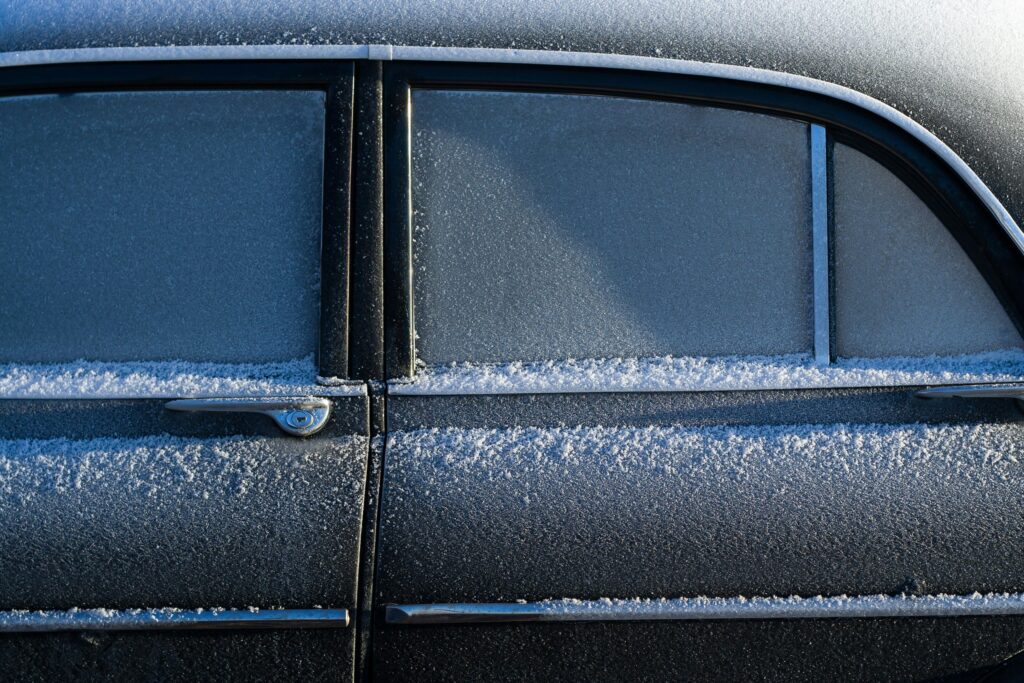Texas may not be renowned for severe winters, but preparing your car for a Texas freeze is essential when temperatures drop unexpectedly. By following the right steps, you can ensure your vehicle is ready to handle icy conditions, avoid costly repairs, and maintain your safety on the road. Here’s a comprehensive guide to prepare your car for a Texas freeze.
1. Check Your Battery
Cold weather can impact your car’s battery, reducing its ability to hold a charge. Here’s how to prepare your battery for a Texas freeze:
- Test Your Battery: Have a professional test your battery to ensure it’s strong enough for cold temperatures. If it’s over three years old, consider replacing it.
- Clean the Terminals: Corrosion on battery terminals can prevent your car from starting. Clean any buildup with a mixture of baking soda and water.
- Keep Jumper Cables Handy: Even with precautions, a weak battery might still fail. Always carry a set of jumper cables in your car.
2. Inspect Your Tires
Proper tire maintenance is crucial for safe driving in icy conditions. To prepare your tires for a Texas freeze:
- Check Tread Depth: Ensure your tires have sufficient tread depth. Worn tires are more likely to lose traction on icy roads. Use a penny to check tread depth; if Lincoln’s head is visible, it’s time for new tires.
- Inflate Tires Correctly: Cold weather causes tire pressure to drop. Check your tire pressure regularly and maintain it at the recommended level (found in your car’s owner’s manual or on the driver’s side door jamb).
- Consider Winter Tires: If you live in an area of Texas that frequently experiences freezing temperatures, investing in winter tires can provide better traction on snow and ice.
3. Replace Wiper Blades and Top Off Washer Fluid
Visibility is crucial during winter driving. Ensure your wiper blades and washer fluid are ready to handle a Texas freeze:
- Inspect Wiper Blades: Replace wiper blades if they streak, skip, or squeak. Consider winter wiper blades designed for ice and snow.
- Use Winter-Grade Washer Fluid: Regular washer fluid can freeze. Use a winter-grade fluid that won’t freeze in low temperatures.
4. Check Your Antifreeze Levels
Antifreeze is vital for engine performance in cold weather. To prepare your coolant system for a Texas freeze:
- Test Antifreeze Strength: Use an antifreeze tester to check the coolant strength. It should be a 50/50 mix of antifreeze and water.
- Top Off If Necessary: If the antifreeze is low, top it off with the correct mixture. Use the type of antifreeze recommended by your vehicle’s manufacturer.
5. Prepare an Emergency Kit
Winter emergencies can happen unexpectedly. Prepare a cold-weather emergency kit that includes:
- Blankets and Warm Clothing: Essential for staying warm if you get stranded.
- Flashlight and Extra Batteries: Important for nighttime breakdowns.
- Non-Perishable Snacks and Water: Keep high-energy snacks and bottled water in your car.
- First Aid Kit: Include bandages, antiseptic wipes, and pain relievers.
- Ice Scraper and De-icer: Keep your windshield clear of ice and snow.
- Sand or Cat Litter: Provides traction if you get stuck on ice.
6. Inspect Your Brakes
Brakes are especially important in icy conditions. To ensure your brakes are ready for a Texas freeze:
- Check Brake Pads and Rotors: Have your brakes inspected to ensure they’re in good condition. Worn brakes can be dangerous on slippery roads.
- Test Your ABS: If your car has an Anti-lock Braking System (ABS), ensure it’s functioning properly. ABS helps prevent wheel lock-up during hard braking.
7. Ensure Your Heater and Defroster Work
A functioning heating system is essential for comfort and safety. To prepare your heater and defroster for a Texas freeze:
- Test the Heater: Ensure your heater blows hot air. If it doesn’t, have it checked by a mechanic.
- Check the Defroster: The defroster should clear your windshield quickly. If it’s not working well, it can compromise visibility.
8. Keep Your Gas Tank Full
A full gas tank can prevent fuel lines from freezing. To prepare your gas tank for a Texas freeze:
- Refuel Frequently: Keep your gas tank at least half full during winter. This ensures you have enough fuel if you get stuck or delayed.
- Add a Fuel Additive: In extreme cold, consider using a fuel additive to prevent gas line freeze-up.
Preparing your car for a Texas freeze doesn’t have to be complicated, but it does require attention to detail. By following these essential tips, you can ensure your vehicle is ready to handle whatever winter throws your way. Not only will this preparation keep you safe, but it will also protect your car from damage and extend its lifespan.

